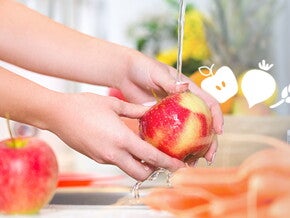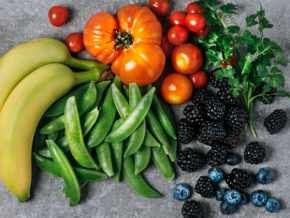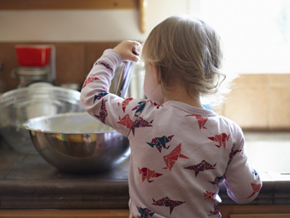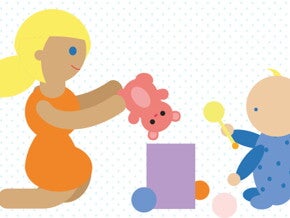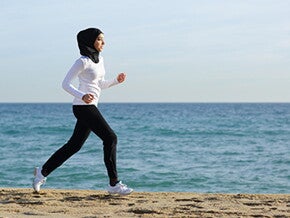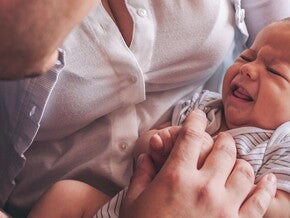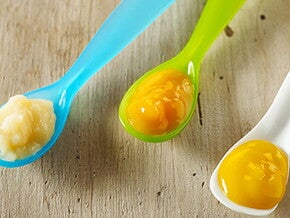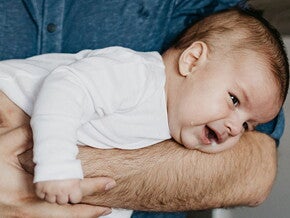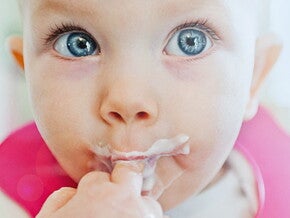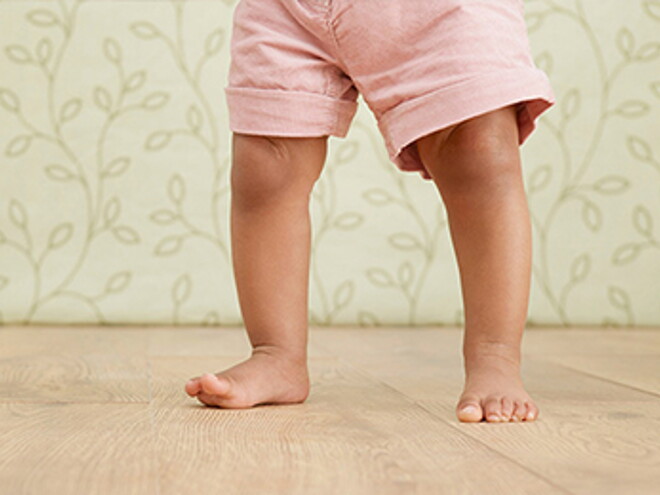
If you think your baby has it easy for the first few months, think again. Every day brings new skills and unique processing and progress. Try not to compare and worry if your little one is behind in any of the physical developmental stages such as crawling, walking and self-feeding as your baby is individual in how they develop. Seek professional advice if you are worried.
Why does your baby smile, babble, sit up or walk for the first time?
There are specialists who believe babies and children develop from the tops of their bodies to the bottom and from the middle of the body to the tips of their fingers and toes. Being aware of this principle makes it easier to understand how your baby develops and to understand how various skills are acquired. In addition to this technical explanation, the thing that motivates children to develop most is the stimulation and desire to discover the world and to become independent. All of the senses come together in this exploration – hearing, smell, touch, taste and sight. Senses do not function separately, even if some are sharper than others at birth or inside the womb, notably smell, hearing and taste. Their development is not dependent on a single factor but the result of combined factors or processes.
From what age does your baby recognise faces?
Sight is the last sense to develop. At 2 months old, your baby can see your face at a distance, roughly the distance between you and your baby while feeding them. What your baby sees however is still unclear. They react to stimuli and do not really recognise their mother, except by her smell and voice and unique movements. At this stage, your baby will experience several first times, almost all at once. The social smile when your baby reacts to stimuli and the head moving from side to side as they observe the world around them. At around 3 months they will be able to identify the faces of regular family members.
Why does your baby grab onto everything and anything they can at around three months?
To begin with and completely by accident, your baby grabs onto objects without meaning to, and thus discovers a revolutionary aspect to their world – hands. Your baby can clasp fingers around an object when she is given the opportunity. Help your baby discover and practice this extraordinary ability.
When should I start feeding my baby solids?
Solid foods should not be introduced before 4 months but there is controversy as to whether they should be introduced between 4 and 6 months or at 6 months of age. According to the Health Promotion Board, solid foods should be introduced from 6 months.
What motivates babies to start walking?
Your baby is motivated to walk from the will to become independent and to imitate you. This applies to all other skills as well. At about 6 months your baby will start to learn to turn onto their tummy, sit up alone (at around 7 months) and is able to place their hands in front as they turn over. Towards 10 to 11 months your baby may take their first hesitant steps while holding onto furniture or the bars of the playpen.
Babies tend to improve their motor development through movement and play; including the following important developments:
- Sitting
- Crawling
- Tummy time
- Promoting eye movement by looking at colourful pictures in books
- Encouraging your baby to lift their head by rolling objects in front of your baby
- Placing toys just out of reach to encourage reaching.
Once your baby has turned one the following can be included:
- Ride on toys
- Simple songs with simple actions to follow
- Walking upright and eventually running
- Climbing
- Jumping
- Carrying
- Pulling
- Pushing
- Throwing
What games can I play with my baby to support their development?
There is no point trying to force your baby’s development to speed along as all babies develop at their own rate. Start by talking to them about what is going on in their world from the day they are born.
During the early days your baby will love to watch mobiles move, listen to soft rattles and grip onto thin objects with their little fingers.
From 3 months an activity mat is ideal for baby’s first urges to move around, watch and grab things. Spending time on the floor from now on is the best and safest form of sensual discovery and muscle development – you will need to start baby-proofing your house though.
Does motor development also depend on diet?
The mouth is considered your baby’s sixth sense and around 5 months old you will notice many things head towards the mouth – the mouth enables your baby to use all senses at once. This period of psychomotor development helps your baby construct their identity. Understanding the importance of the baby’s mouth helps parents to introduce solids – combining different textures, colours, shapes and tastes on a daily basis. Balanced nutrition is also essential for the development of your baby’s brain and mobility.
